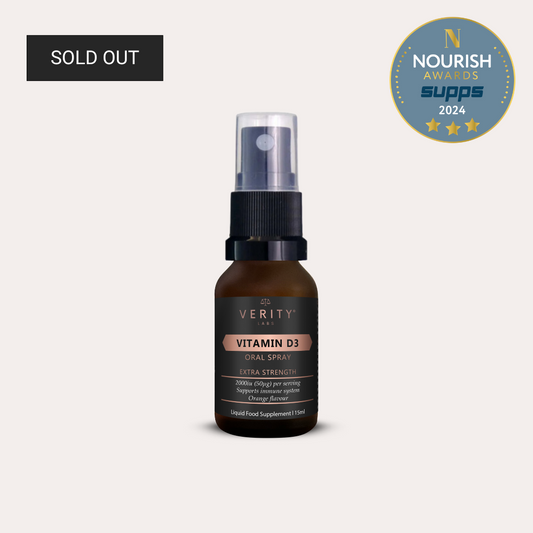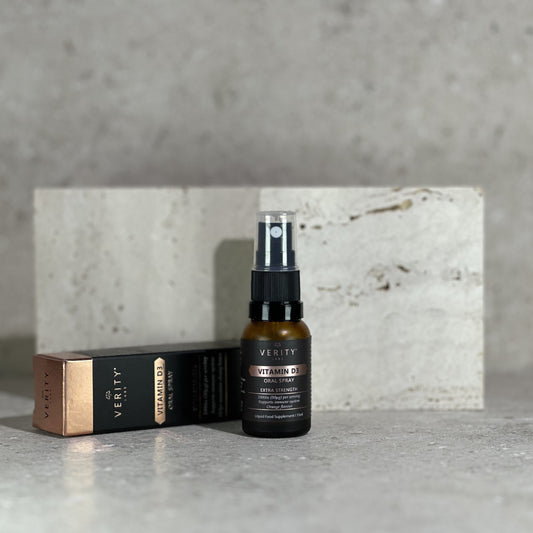Have you ever wondered whether your skin can be improved from the inside out? From acne, skin pigmentation and dryness, scientific research has been progressing to address these problems.
The gut-skin axis is a concept that describes the bidirectional communication and interaction between the gastrointestinal (GI) tract (specifically the gut microbiome) and the skin. This axis highlights the idea that changes or disruptions in gut health can influence skin health and vice versa. An understanding of the gut-skin axis is important for several reasons including:
Microbiome Influence: The gut microbiome plays a crucial role in regulating the immune system and maintaining overall health. Imbalances in the gut microbiome can lead to systemic inflammation and immune dysregulation, which may contribute to skin conditions such as acne, eczema, rosacea, and psoriasis.
Inflammation and Immune Response: The gut is a major site of immune activity, and disturbances in gut health can trigger inflammatory responses that may impact the skin. Chronic inflammation in the gut can contribute to systemic inflammation, which can manifest as skin issues.
Nutrient Absorption: The gut is responsible for absorbing nutrients from food. Nutrient deficiencies or malabsorption issues can affect the health and appearance of the skin. For example, deficiencies in vitamins like vitamin D, vitamin A, and zinc can lead to skin problems.
Neuroendocrine Factors: The gut and skin are influenced by common neuroendocrine pathways, including stress hormones like cortisol. Stress and other emotional factors can impact gut health and alter the skin's barrier function, leading to conditions like acne and eczema.
The Gut Microbiome and Skin Involvements
The skin is the largest organ accounting for around 15% total body weight of an adult. Importantly, the skin provides a role in detoxification and provides a mechanical barrier to micro-organisms. It is therefore a vital defence against infection along with the adaptive and innate immune system. The skin is heavily colonised with microbial cells with the skin microbiome gaining significant attention over recent years with a growing number of skin conditions associated with microbiota and enriched pathogens(1).
The GI tract holds a wide-ranging collection of protozoa, fungi and bacteria. These microorganisms are critical for both metabolic and immune function metabolising complex polysaccharides into essential nutrients including butyrate and propionate (2). Growing research has demonstrated an important bidirectional connection between the skin and gut. Influence of the gut microbiome on the skin microbiome are believed to be linked to production of short chain fatty acids, potentially determining the skin microbiomic profile (3).
How to Support your Skin and Gut Microbiome?
Below are some strategies to help support these microbiomes:
Eat a Diverse Diet: Consume a wide variety of fruits, vegetables, whole grains, legumes, nuts, and seeds aiming for 30 different plants per week. Diversity in your diet promotes a diverse microbiome, which is associated with better gut health (4).
Include Fermented Foods: Incorporate fermented foods like yogurt, kefir, sauerkraut, kimchi, and miso into your diet. These foods contain beneficial probiotics that can help maintain a healthy balance of gut bacteria.
Eat Prebiotic Foods: Consume foods rich in prebiotic fibres, serving as food for the beneficial bacteria in your gut. These include onions, garlic, leeks, asparagus, bananas, and oats.
Limit Sugar and Processed Foods: High sugar and highly processed foods can negatively impact the gut microbiome by promoting the growth of harmful bacteria. Opt for whole, minimally processed foods instead.
Stay Hydrated: Drinking plenty of water helps support digestion.
Consider Probiotic Supplements: In certain cases, such as after antibiotic use or for specific health conditions, taking a high-quality probiotic supplement may help restore and maintain gut health.
Use Gentle Skin Care Products: Avoid harsh soaps and cleansers that can disrupt the natural balance of bacteria on your skin.
Manage Stress: Chronic stress can affect the gut-brain-skin axis, leading to skin issues. Practice stress-reducing techniques such as meditation, yoga, or deep breathing exercises.
Author – Charlotte Winter, Nutritional Biochemist
For daily recipes to complement Verity Labs Debloat & Soothe – Digestion Support, please refer to The Nutritional-Biochemist https://www.nutritional-biochemist.com These recipes focus on incorporating key macro and micronutrients from nutrient dense wholefoods to support optimal health.
Sources:
- Gao, T., Wang, X., Li, Y., & Ren, F. (2023). The Role of Probiotics in Skin Health and Related Gut-Skin Axis: A Review.Nutrients, 15(14), 3123. https://doi.org/10.3390/nu15143123
- De Pessemier, B., Grine, L., Debaere, M., Maes, A., Paetzold, B., & Callewaert, C. (2021). Gut-Skin Axis: Current Knowledge of the Interrelationship between Microbial Dysbiosis and Skin Conditions.Microorganisms, 9(2), 353. https://doi.org/10.3390/microorganisms9020353
- Salem, I., Ramser, A., Isham, N., & Ghannoum, M. A. (2018). The Gut Microbiome as a Major Regulator of the Gut-Skin Axis.Frontiers in microbiology, 9, 1459. https://doi.org/10.3389/fmicb.2018.01459
- McDonald, D., Hyde, E., Debelius, J. W., Morton, J. T., Gonzalez, A., Ackermann, G., Aksenov, A. A., Behsaz, B., Brennan, C., Chen, Y., DeRight Goldasich, L., Dorrestein, P. C., Dunn, R. R., Fahimipour, A. K., Gaffney, J., Gilbert, J. A., Gogul, G., Green, J. L., Hugenholtz, P., Humphrey, G., … Knight, R. (2018). American Gut: an Open Platform for Citizen Science Microbiome Research.mSystems, 3(3), e00031-18. https://doi.org/10.1128/mSystems.00031-18
















